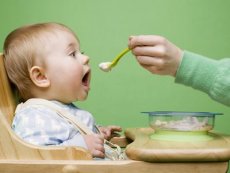New publications
Mother's milk determines the weight of the baby in the future
Last reviewed: 01.07.2025

All iLive content is medically reviewed or fact checked to ensure as much factual accuracy as possible.
We have strict sourcing guidelines and only link to reputable media sites, academic research institutions and, whenever possible, medically peer reviewed studies. Note that the numbers in parentheses ([1], [2], etc.) are clickable links to these studies.
If you feel that any of our content is inaccurate, out-of-date, or otherwise questionable, please select it and press Ctrl + Enter.

Today, the problem of fighting excess weight has become increasingly widespread.
The modern high-fat diet is a major concern in Western society. Excess fat is deposited not only under the skin, but also around internal organs, making them difficult to work on and disrupting their functions. This leads to all the health problems that follow.
People who are overweight are at greater risk of developing diseases such as hypertension, type 2 diabetes, arthritis, cardiovascular disease, and some types of cancer.
According to a new study by Johns Hopkins University researchers, poor nutrition in the first months of life can lead to obesity in the future.
Scientists conducted a series of experiments on rats.
The researchers manipulated the weight levels of newborn rats through their mothers' breast milk. Pregnant rats were divided into two groups, one of which was kept on a very nutritious diet, and the other on a diet with a moderate amount of fat.
Rat pups born to mothers on a "fatty" diet, but given a balanced diet after birth, were able to subsequently avoid gaining excess weight and, accordingly, the problems associated with it.
But the rats whose mothers ate healthy food, without exceeding the permissible norm of fat, but after birth were fed milk with a high concentration of fat, on the contrary, became obese.
As the results of experiments show, for infant mammals, including humans, healthy, balanced nutrition after birth is much more important than what they receive in the womb.
"Our research confirms that infant nutrition in the first months of life has a major impact on their weight and health later in life," says Kelly Tamashiro, associate professor of psychiatry and behavioral sciences at Johns Hopkins University. "This provides an opportunity to control this process to avoid problems with obesity in the future."
At the moment, the researchers are trying to establish whether the physical activity of rats can correspond to the physical activity of primary school children. In this way, scientists will be able to understand whether the consequences of poor nutrition in children can be prevented.
"The development process and behavioral characteristics of these animals are very similar to humans, although it is not certain that the methods used in the experiment will yield the same results in humans. We want to make sure that if you stick to the right diet, there will be fewer health problems," says Dr. Tamashiro.
